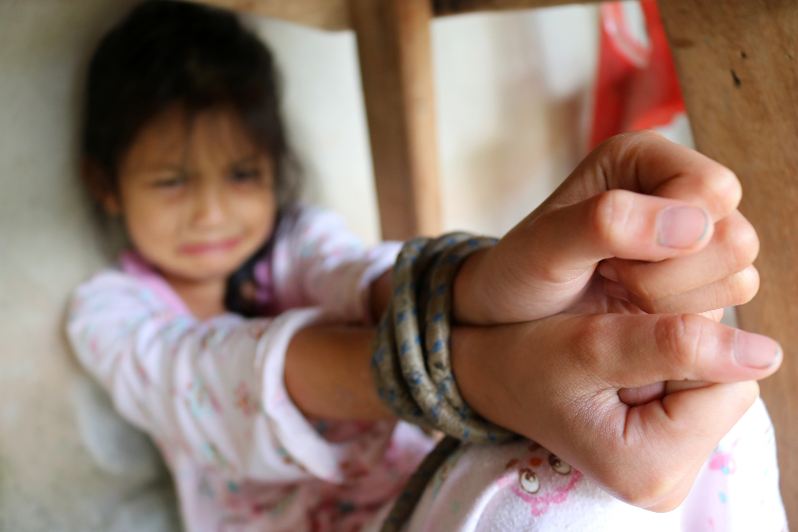

It may not come as a surprise to you that illegal drug trading is the largest criminal business in the world. What may end up surprising you, however, is the second-largest criminal business: human trafficking. Human trafficking is the fastest-growing criminal operation in the world, with an estimated industry of $150 billion and over 40 million victims worldwide.
If you’ve heard that the illegal drug trade and human trafficking operations are working together, you may be on to something. These two industries tend to work side by side within the criminal underground, and understanding the role drugs play in enabling modern slavery is quite complex.
What is Human Trafficking?
Human trafficking is the recruitment, transportation, transfer, harboring, or receipt of humans through force, fraud, or deception, with the intention of exploiting them for profit. There are six types of human trafficking:
- Forced labor: forcing an individual to work in order to pay a debt
- Sex trafficking: illegally transporting people for the purpose of sexual exploitation
- Child soldiers: children under the age of 18 who are recruited by armed groups to be used as fighters, suicide bombers, human shields, spies, etc.
- Organ trafficking: stealing or buying human organs through exploitation to be sold on a black market
- Debt bondage: forcing a person to work to pay off a debt where the terms of repayment are not clearly stated, or is impossible to repay, and the person holding the debt has some control over the laborer
- Forced marriage: forcing a person into a marriage where one or both participants cannot consent
Men, women, and children of all ages and backgrounds can become victims of human trafficking, which transpires in every area of the world. Unfortunately, this problem is not showing any signs of disappearing. In fact, the Department of Children & Family Services reports that there were 927 confirmed victims of human trafficking in Louisiana in 2019. That’s a 25% increase of victims identified over the previous year.
The Link Between Drugs and Human Trafficking
Human traffickers often seek out people with substance use disorders and promise them unlimited drugs as a way to keep them under control. Addiction is a human trafficker’s most powerful tool. By creating a dependency on the trafficker, they are able to prolong their exploitation.
According to the Louisiana Department of Health, opiate addiction runs rampant across the state. Opioid-involved deaths reported in Louisiana have risen steadily since 2014, with a 25% increase from 470 deaths in 2018 to 518 in 2019.
Throughout the world, drug traffickers and human traffickers often work hand in hand. A few ways these two industries have found ways to work together is by:
- Forcing trafficking victims to smuggle drugs
- Transporting people as a source of money
- Using drugs as bait to victimize people with substance use disorders
- Using drugs to force a victim to obey orders or work harder
From January 1, 2015 to June 30, 2017, Polaris Project recorded that over 2,000 potential victims of human trafficking had drugs used as a means of control in their trafficking situation.
Get an Experienced Louisiana Criminal Defense Lawyer
Have you recently been charged with a felony or convicted of a crime? With over 25 years of experience in Louisiana, John D. & Eric G. Johnson Law Firm has focused on defending drug charges for decades.
You need a trustworthy attorney on your side, and our seasoned legal defense team will help ensure that you get the justice you deserve. Call (318) 377-1555 or complete one of our online contact forms for a free consultation.
